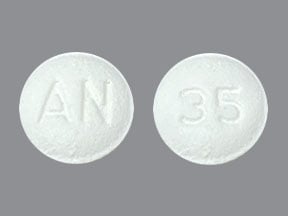
Dipyridamole Coupons & Savings Card – Discount Prices from $12.99
My prescription
Edit
25MG, Dipyridamole (30 Tablets)
Select pharmacy

CVS
$19.74
COUPON PRICE
Walmart
$12.99
COUPON PRICE
Walgreens
$14.82
COUPON PRICE
Albertsons
$14.90
COUPON PRICEFree Dipyridamole Savings Card

Walmart
$12.99
Show this coupon to your pharmacist
ID
LHF06BB0E2
PCN
HT
BIN
011867
GRP
LABH001
This coupon is not insurance
Related antiplatelet drugs prescriptions
More prescriptions for heart attack
Related antiplatelet drugs prescriptions
More prescriptions for heart attack
Dipyridamole dosage forms
Dosage Quantity Price from Per unit 25MG 30 Tablets $19.74 $0.66 25MG 60 Tablets $21.48 $0.36 25MG 90 Tablets $23.22 $0.26 50MG 30 Tablets $19.83 $0.66 50MG 60 Tablets $23.46 $0.39 50MG 90 Tablets $26.19 $0.29 75MG 30 Tablets $16.72 $0.56 75MG 60 Tablets $25.44 $0.42 75MG 90 Tablets $29.16 $0.32
| Dosage | Quantity | Price from | Per unit |
|---|---|---|---|
| 25MG | 30 Tablets | $19.74 | $0.66 |
| 25MG | 60 Tablets | $21.48 | $0.36 |
| 25MG | 90 Tablets | $23.22 | $0.26 |
| 50MG | 30 Tablets | $19.83 | $0.66 |
| 50MG | 60 Tablets | $23.46 | $0.39 |
| 50MG | 90 Tablets | $26.19 | $0.29 |
| 75MG | 30 Tablets | $16.72 | $0.56 |
| 75MG | 60 Tablets | $25.44 | $0.42 |
| 75MG | 90 Tablets | $29.16 | $0.32 |
Dipyridamole Warnings
This document outlines essential safety information regarding the use of Dipyridamole (Persantine). It's crucial to be aware of the potential risks and take necessary precautions. Discuss any concerns with your healthcare provider.
Low Blood Pressure: Dipyridamole may lead to or exacerbate low blood pressure, causing dizziness or fainting sensations. Exercise caution when transitioning from sitting or lying positions to standing. Immediately report any severe dizziness or falls to your healthcare provider. Those with a history of low blood pressure or who are on blood pressure medications are at increased risk.
Liver Damage: There is a potential risk of liver damage or failure with the use of Dipyridamole. Your healthcare provider may conduct blood tests to monitor liver function. Promptly inform your provider if you experience unusual stomach pain, nausea, vomiting, pale stools, or a loss of appetite. Individuals with a history of liver disease should be particularly cautious.
Heart Problems: For individuals with a history of angina or heart attacks, Dipyridamole may worsen chest pain. Notify your healthcare provider if you have a history of these conditions and seek immediate advice if you experience chest pain while taking this medication.
Please consult your healthcare provider to ensure safe usage and management of Dipyridamole.
Dipyridamole Side Effects
Common side effects:
- dizziness
- stomach upset
- diarrhea
- vomiting
- headache
- flushing
Less common but important to monitor:
- nausea
- rash
- itching
- fatigue
- muscle pain
- low blood pressure
Serious side effects:
- chest pain
- severe headache
- weakness on one side of the body
- vision changes
- trouble speaking
- confusion
- dark urine
- yellowing skin or eyes
- severe stomach pain
- loss of appetite
- severe dizziness
- swelling
- trouble breathing
Dipyridamole Interactions
Interactions with high risk of serious adverse effects and should be avoided:
- Riociguat
- Defibrotide
Interactions with moderate risk that may require dose adjustment, closer monitoring, or timing changes:
- Heparin
- Warfarin
- Abciximab
- Apixaban
- Rivaroxaban
- Aspirin
- Adenosine
- Tenecteplase
